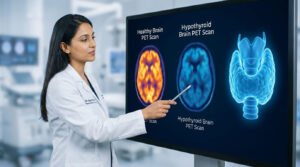obesity was known to mankind for more than 25,000 years. Its first representation was seen in the form of female obese sculpture from somewhere between 20,00035,000 years ago. Despite of obesity being described by Hippocrates as a disease (460-370 BC); it was still the symbol for prosperity, power and fertility till 17 century. Hippocrates compared good human health to the balance of four humors or fluids, namely; blood, black bile, yellow bile and phlegm. Any alterations in these humors were believed to be the cause behind diseases, and obesity was defined as the surplus of these humors.
He even believed that obesity can lead to infertility and early mortality, which took nearly 2000 years to scientifically prove and evaluate his hypothesis. Withstanding several studies and findings till date, yet the topic of obesity is extremely complex. Even today, when it comes to certain condition, experts are not clear whether obesity is an exposure or an outcome.
Remarkable technologies have been devised in last couple of decades for its management. Digital platform has played an enormous role in the contribution, especially in last few years. Array of endoscopic approaches have been employed along with the cryolipolysis being the most popular approach recently.
- Digital Approaches
- Exergames
- Mobile & Web Based Applications
- Sensor Based Technologies
- Videoconferencing
- Body Contouring Techniques
In the last century, remarkable feats have been achieved in terms of technological advancements bringing the profound changes in the humans. These changes mostly affected the individual’s lifestyle, foods, physical activity, health risks and what not. One major drawback of this advancement was the increased body weight among the individuals which is associated with severe health consequences. Contrary to this, now the same technology also offers a promise to address the challenges of obesity.
Exergames, exergaming or gamercising is a totally new concept based on body movement requiring substantial amount of physical activity. Daily one hour of normal exercise is recommended in order to be fit. However, many find it unpleasant or hectic and thus avoids it. These games are designed to make exercising fun by using different platforms like sensors, camera, GPS, accelerometry and many more. Recent developments includes the options of virtual reality or augmented reality to make it more appealing. Virtual reality technology creates an illusion to the user entering in a virtual world like a space or a lawn tennis court and even boxing rings, wherein, users have to perform their own physical movements to advance. On the other hand augmented reality uses 3D graphics and embed it in a real-world view.
Several smartphones and web based programs are available for weight loss. These can provide nutritional information, cooking aides, weight control strategies and self monitoring options for personalized goal setting Recently, even sophisticated algorithms were integrated for tracking the individual behavior in order to predict it for future, Some researches are actually being carried out on reinforcement learning programs, with the aim of optimizing the choice and nature of interventions based on a particular individual’s patterns or response to various forms of intervention.
In conjunction with the birth of smart phones, smart devices were created to complement human needs to the new level. These devices were equipped with tools and sensors which operates singly or can be paired with the phones with the aim to fulfill the humans desire for self-digitizing. These tools included certain sensors capable of tracking individual’s health, behaviors or patterns. It is equally helpful in tracking the calorie intake-expenditure balance, important for weight loss, live impact of certain exercises, food/drink calories, body weight, sleep quality, blood pressure and others.
It has played an essential role in producing best outcomes in weight control programs by allowing meetings to occur virtually anywhere at anytime. Improvements in the broadband speeds, connectivity and use of smart phones by the majority of the population has slowly eliminated the need of personal coaches. It is relatively cheap, easily accessible and has high quality. Recently, practicing group videoconfe rencing has also been observed to produce clinically meaningful weight losses.
In last few years, several approaches have been strategized to curb obesity by using non invasive modes, These includes reduction of adipose tissue by using high intensity ultrasound, radio frequency devices, laser therapies or the cryolipolysis; the most recent ones as a non invasive techniques for reducing fats.
Cryolipolysis-Will it Ever Overtake Liposuction?
Although, liposuction is more popular and has significant aesthetic advantages along with several metabolic benefits,
but also is an invasive procedure which carries risks of complications from anesthesia and infections. In contrast,
cryolipolysis has been employed in countering the body without any invasive approaches. Owing to the advantages
like less recovery time and minimal damage to the healthy cells, it is slowly gaining popularity
It is a completely different technique based on the concept that adipocytes are more susceptible to low temperatures or cooling than other skin cells. Accurate use of cold temperature on the targeted adipocytes results in its death which is further engulfed and digested by macrophages. Although, no immediate changes in subcutaneous fat is noticed but an inflammatory process triggered due to apoptosis of adipocytes can be seen within 3 days post treatment. It peaks at approximately 14 days after which adipocytes become surrounded by histiocytes, neutrophils, lymphocytes and different mononuclear cells. After around 14.30 days, macrophages and phagocytes surrounds, envelope and digest the lipid cells as part of body’s natural response to injury. After 4 weeks, the inflammation lessens and volume of adipocytes is reduced and 2-3 months ahead of the treatment, interlobular septa are thickened and further, inflammatory process gets decreased. By this time, fat volume in targeted area is significantly decreased and septae account for the majority of the tissue volume.
- High Intensity Focused Ultrasound
- Radiofrequency Devices
- Low-level Laser Therapy
- Acoustic Wave Therapy
- Endoscopic Treatment
It delivers focused acoustic energy to subcutaneous tissue at certain depths. These high intensity ultrasound disrupts the cell membrane immediately and its thermal mechanism destroys adipocytes above 56??C, resulting in coagulative necrosis at specific targeted area without affecting/damaging the surrounding tissues, vessels and nerves.
These devices cause thermal injury to targeted tissue by using electric field and is commonly employed for tightening of skin laxity and remodeling. This thermal damages results in collagen contraction and ensues remodeling
Its a unique mode which doesn’t involve thermal tissue damaging and is based on concept of producing transient pores in adipocytes causing lipids to leak out.
This therapeutic mode of reducing accumulated fat does not adopt invasive techniques. Short pulsed waves which are thought to activate new collagen growth, stimulate angiogenesis near fat cells and activate lipases are used for therapy; resulting in tightening of the cellulite.
Lifestyle modifications, diet, pharmacological therapy and bariatric surgery are the common modes available to manage obesity. High attrition rates, limited effectiveness and durability are the major drawbacks of the lifestyle modifications and use of pharmacological agents. Whereas, surgical interventions like sleeve resection or gastric bypass are the most effective ones but can be practiced only on very obese individuals.
The endoscopic approach can be the option of choice for the individuals preferring less invasive intervention with appropriate weight loss, reduced morbidity and easy access. With several advantages over other techniques, it can be performed through a simple endoscopic procedures. Reversible state can be achieved through intragastric balloon, suture technique, aspiration therapy or endoluminal malabsorptive devices. These techniques can vary in accordance to its mechanisms, effects, persistence and reversibility. Hence this depends on the treatment regime, degrees of obesity and risks associated with it.
Intragastric balloons and suturing techniques are based on space-occupying and volume restriction mechanisms. Intragastric balloons can be retained for 6 months within stomach and is then eliminated. This balloon placement results in reduced food intake in obese individuals. Whereas, suturing techniques like endoluminal vertical gastroplasty or transoral gastroplasty completely requires high endoscopic skills and time.
Malabsorption techniques on other hand is designed to prevent nutrient contact to the mucosa of the proximal intestine and also delays gastric emptying causing early satiety. These diseases are safe when implanted and significant weight loss is observed with the improvement of cardiometabolic parameters.
Understandably, many of them are still in the early stage of the development. Also, lots of researches are still to be done on its future prospects. But arguably, it has a potential to act as a bridge between invasive surgical procedures and the patients who are willing to opt for more simple and safe options.







